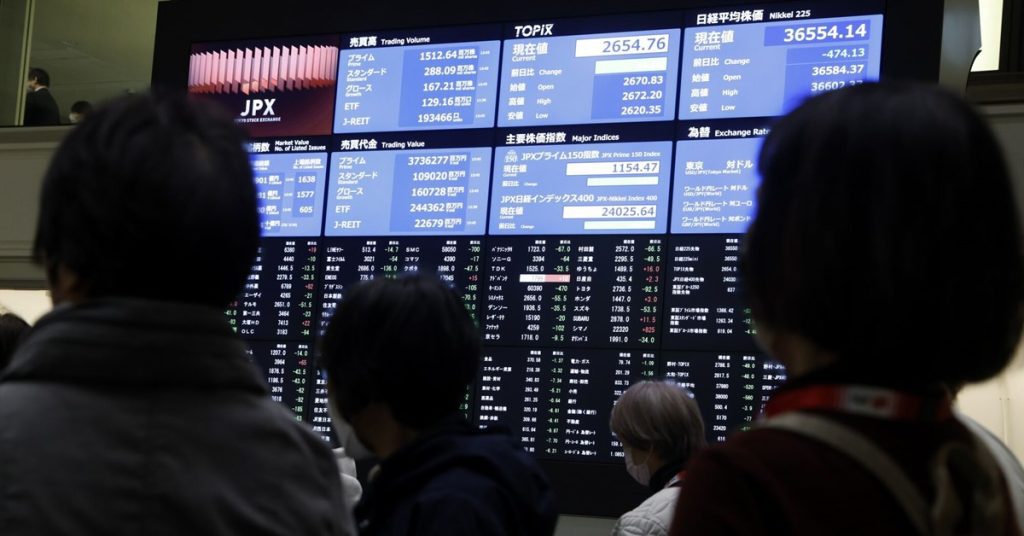(Bloomberg) — Asian stock markets rose in response to a surge on Wall Street, following signals from the Federal Reserve indicating that it is still open to the possibility of interest rate cuts later this year, due to expectations that any inflation spikes caused by tariffs will be temporary.
The MSCI regional stock index soared to its highest level since early November, with stocks in Taiwan, Australia, and South Korea seeing significant increases. U.S. equity futures also saw a slight uptick after the S&P 500 recorded its largest gain on a Federal Reserve policy decision day since July. Japanese markets remained closed for a holiday.
Treasury futures continued to rise from Wednesday’s gains, while cash Treasuries remained unavailable in Asia owing to the holiday in Japan. Meanwhile, the Australian dollar declined following a report indicating a drop of 52,800 jobs in the country last month, contrasting with forecasts of a 30,000 increase. Copper prices rose above $10,000 per ton amid concerns over potential higher tariffs.
“The Fed’s message will likely contribute to a weaker dollar in the near future and reduce capital outflows from Asian markets,” stated Rajat Agarwal, an Asia strategist at Societe Generale SA. He noted that easing U.S. financial conditions due to rate cut expectations and slower balance sheet reductions may eventually enhance inflows into Asian and emerging market equities.
Contrary to the positive trend, Chinese shares fell, marking the first decline in three days for the mainland benchmark CSI 300 Index. Technology firms experienced significant losses following their recent rallies. In Hong Kong, the Hang Seng Index slipped by as much as 1.7%.
According to UBS Global Wealth Management analyst Sundeep Gantori on Bloomberg Television, “The risk-reward situation for China appears less favorable now, while it seems much more promising for U.S. technology stocks after the recent corrections. However, we still predict a solid upside of possibly low teens and around 10% for China for the remainder of the year.”
The Federal Reserve held its benchmark rate steady as anticipated, with Chair Jerome Powell providing a measured perspective on President Donald Trump’s economic influences, suggesting that tariff impact on inflation may be “transitory.” Powell’s reassurance about recession risk being “not high” helped calm investor concerns, contributing to stock and bond market rallies.
In the currency and commodity markets, the Bloomberg Dollar Spot Index fell by 0.1%, while West Texas Intermediate crude oil rose 0.6% to $67.54 a barrel. Bitcoin increased by 0.6% to $85,884.76, whereas Ether dipped by 0.6% to $2,023.36. Overall, the financial markets exhibited mixed reactions amidst wider economic developments.



